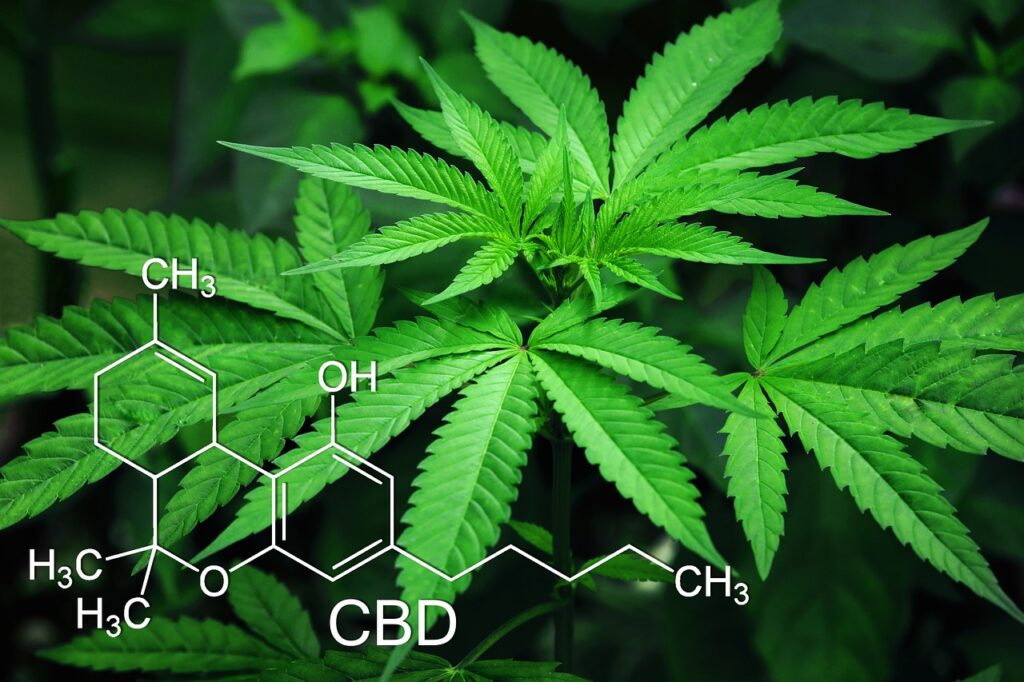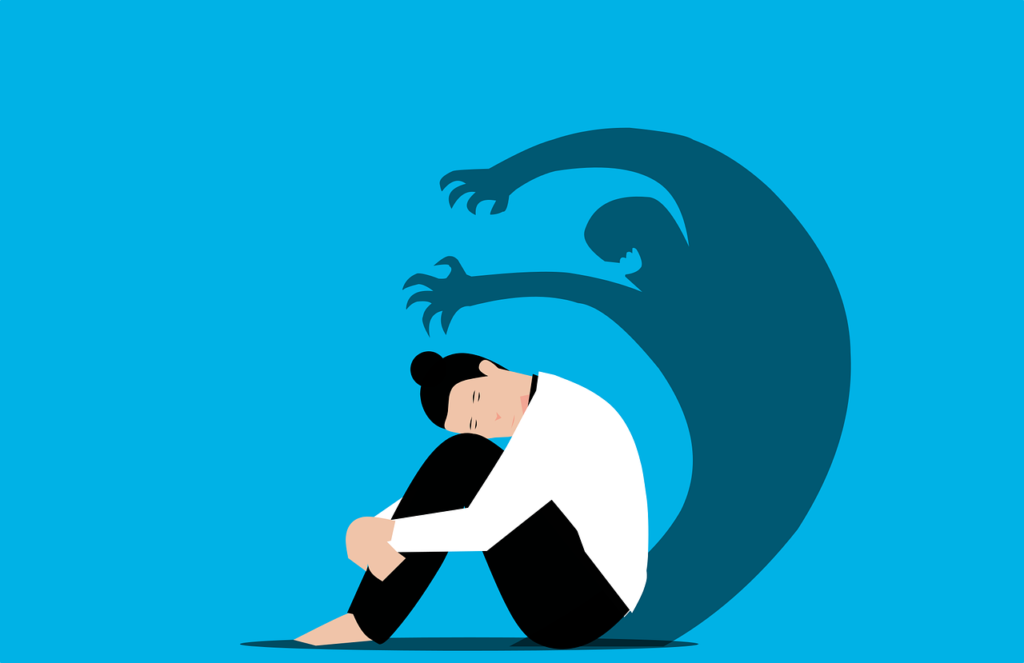
Introduction:
Marijuana use has become increasingly prevalent in recent years, with many individuals turning to the plant for its perceived calming effects. However, there is growing evidence to suggest that heavy marijuana use may actually exacerbate anxiety disorders such as generalized anxiety disorder, panic disorder, and social anxiety disorder. In this blog, we will explore the relationship between heavy marijuana use and anxiety disorders, delving into the impact of THC, the potential worsening of anxiety symptoms, and the lack of evidence for cannabis as an effective treatment for anxiety disorders. Whether you are concerned about your own mental health, a cannabis user looking for more information, or a healthcare professional seeking to understand the latest research, this blog aims to provide valuable insights into the impact of heavy marijuana use on anxiety disorders.
Heavy Marijuana Use and Anxiety Disorders
The relationship between heavy marijuana use and anxiety disorders has been a topic of interest in recent research. According to a comprehensive study published in The Lancet’s e-Clinical Medicine, nearly a third of people who visited the emergency room for a cannabis-related concern developed a new anxiety disorder within three years.
This study, which examined the health records of over 12 million people in Ontario between 2008 and 2019, found that those who had an emergency room visit for cannabis use were more than three times more likely to be diagnosed with a new anxiety disorder within three years. They were also nine times more likely to require another healthcare visit for an anxiety disorder down the road.
The risk of developing an anxiety disorder was particularly elevated for young cannabis users, especially males aged 10-24. However, it is still unclear whether cannabis use leads to anxiety or if anxiety symptoms in cannabis users are pre-existing but underdiagnosed, leading them to self-medicate with marijuana.
Regardless of the causal relationship, the study’s authors caution against using cannabis to treat anxiety. There is a lack of evidence for its efficacy, and relying on it may delay or hinder individuals from seeking evidence-based treatments such as prescription medication and therapy.
It is worth noting that THC, the main psychoactive ingredient in cannabis, has been noted to increase anxiety, while CBD, a non-psychoactive cannabis derivative, has been noted to decrease it. This suggests that the specific components of cannabis can have different effects on anxiety.
The legalization of marijuana in some states has also led to an increase in emergency room visits for cannabis-induced anxiety. One study documented that nearly 20% of emergency room visits over a two-year period at an unnamed hospital in Michigan resulted in a diagnosis of cannabis-induced anxiety.
The Impact of Heavy Marijuana Use on Generalized Anxiety Disorder, Panic Disorder, and Social Anxiety Disorder
The current study is the first meta-analysis to examine the relationship between anxiety and cannabis use. The findings reveal that cohorts with anxiety are more likely to use cannabis or have a cannabis use disorder. This association is also seen in cohorts with concurrent anxiety and depression. It is important to note that these findings are based on samples from the general population who are not receiving treatment for anxiety or cannabis use disorders.
While some individuals may turn to cannabis as a “Band-Aid” strategy for their mood and anxiety disorder symptoms, it is crucial to recognize that this may only provide temporary relief and could potentially worsen outcomes in the long term. It is essential to highlight that no study suggests cannabis use as a viable therapeutic strategy for anxiety and depression.
Furthermore, ongoing cannabis use beyond occasional use may have detrimental effects on therapeutic outcomes. However, reducing cannabis use to at most weekly consumption may lead to improved outcomes. It is important for individuals to understand that if cannabis were truly effective in treating their anxiety, they would not need to seek additional professional help.
Contrary to popular belief, the idea that cannabis can reduce anxiety is not supported by independent scientific evidence. In fact, some studies suggest that cannabis use, particularly products high in THC, may actually worsen anxiety symptoms. Despite this lack of scientific evidence, cannabis companies have promoted their products as helpful for anxiety, creating a potentially lucrative market.
Individuals who are concerned about their mental health should be cautious about relying solely on cannabis as a treatment for anxiety. Seeking professional help, such as therapy or medication, is crucial for long-term management of anxiety disorders. It is important to prioritize evidence-based approaches to mental health and not solely rely on cannabis as a solution.
The Role of THC in Increasing Anxiety Symptoms:
The legal cannabis industry has faced challenges in meeting revenue expectations, but one potential market that has drawn attention is anxiety. Cannabis companies are positioning their products as alternatives to pharmaceuticals for conditions like anxiety, hoping to capture a share of this promising market.
Irwin David Simon, the CEO of Tilray Brands, believes that cannabis can be a useful alternative for various conditions, including anxiety. He sees it as a market that produces repeat customers, with potential applications in replacing alcohol, managing pain for cancer patients, improving sleep, and alleviating anxiety.
Busy Philipps, a well-known actor, author, and influencer, has openly discussed her personal experience using marijuana for panic attacks and anxiety. She described feeling immediate relief and a sense of calm without feeling impaired or unable to fulfill her responsibilities as a mother.
Stacia Woodcock, a former pharmacist and dispensary manager for Curaleaf, explained during a webcast that anxiety, along with autoimmune disorders and arthritis, can overwhelm the endocannabinoid system in the brain and body. She suggested that supplementing with cannabis can help bring the body back into balance.
It is important to note that while these discussions highlight the potential benefits of cannabis for anxiety, they were not intended as promotions. Instead, they aimed to address the stigma surrounding cannabis use and explore its potential benefits for certain individuals.
As the legal cannabis industry continues to evolve, it is essential for individuals concerned about mental health, cannabis users, and healthcare professionals to stay informed about the latest research on marijuana and its potential impact on anxiety disorders.
The Potential Worsening of Anxiety Symptoms with Heavy Marijuana Use:
The recent study published in e-Clinical Medicine has shed light on the potential worsening of anxiety symptoms with heavy marijuana use. This study is considered the most comprehensive examination of the relationship between cannabis use and anxiety to date.
The research found that nearly a third of individuals who visited the emergency room for a cannabis-related concern developed a new anxiety disorder within three years. The study analyzed the health records of over 12 million people in Ontario who had no previous record of an anxiety disorder. It revealed that those who had an emergency room visit for cannabis use were more than three times more likely to be diagnosed with a new anxiety disorder within three years.
Of particular concern is the impact on young cannabis users, who were found to be at higher risk. They had increased chances of developing an anxiety disorder and requiring additional healthcare visits in the future.
Interestingly, anxiety is one of the most common symptoms that visitors to cannabis dispensaries are looking to address. However, it is crucial to note that while some individuals have reported cannabis helping with anxiety, it is important to consult with a doctor before choosing cannabis as a treatment option.
Cannabis companies often train their retail staff, known as “budtenders,” to recommend products based on customers’ needs, ailments, or moods. However, there have been concerns raised about dangerous sales practices in the cannabis industry. Some companies recommend specific pot products for anxiety without proper medical advice, which can be risky.
Recent studies have shown that cannabis use is significantly associated with increased odds of developing anxiety conditions. Therefore, it is crucial to consider the potential risks and consult with medical professionals when using cannabis for anxiety treatment. Taking into account the latest research on marijuana and mental health will help individuals make informed decisions about their well-being.
The Lack of Evidence for Cannabis as an Effective Treatment for Anxiety Disorders:
Despite the growing popularity of cannabis as a potential treatment for anxiety disorders, the evidence supporting its effectiveness is limited. In fact, recent studies have shown that cannabis use can actually worsen symptoms in individuals with anxiety and mood disorders. It’s important to approach the available research with caution, as many studies on cannabis are funded by the industry itself, which may introduce bias.
While some surveys suggest that cannabis users report relief from anxiety symptoms after consumption, it’s crucial to note that the scientific research on this topic is still limited. There is some evidence that cannabidiol (CBD), a nonintoxicating substance derived from cannabis, may have potential in relieving anxiety symptoms. However, more research is needed to fully understand its effectiveness and optimal therapeutic use.
One of the major challenges in studying cannabis is the federal restrictions that have hindered scientific research on its therapeutic use. The complexity and variability of cannabis products further complicate the research process, as the composition of products can vary from batch to batch and have different effects on individuals depending on their age, usage, and other factors.
It’s also important to consider the potential risks associated with regular cannabis use. Cannabis use disorder, characterized by needing to use an increasing amount to achieve the desired effect and experiencing interference with work and relationships, affects about 30% of individuals who reported using marijuana in the past year. Additionally, marijuana use has been linked to a higher risk of delusions and psychosis.
Furthermore, marijuana use can interfere with evidence-based non-drug treatments for anxiety disorders, such as cognitive behavioral therapy. Being under the influence of cannabis can hinder the process of approaching anxiety-provoking situations and learning how to tolerate uncomfortable feelings, which are key components of this therapy.
In Summary
In conclusion, the latest research suggests that heavy marijuana use can have a significant impact on anxiety disorders. The presence of THC in marijuana has been found to increase anxiety symptoms, potentially worsening the condition for individuals with generalized anxiety disorder, panic disorder, and social anxiety disorder. Despite the popular belief that cannabis can be used as a treatment for anxiety disorders, there is a lack of evidence to support its effectiveness. It is important for individuals concerned about their mental health, cannabis users, and healthcare professionals to be aware of these findings and consider alternative approaches for managing anxiety. As further research is conducted, it is crucial to stay informed and make informed decisions regarding marijuana use and its potential impact on anxiety disorders.
Sources:
Cannabis use and social anxiety in young adulthood: A meta-analysis
A positive association between anxiety disorders and cannabis use …
Is Cannabis a Remedy for Anxiety? – Jefferson Health
Heavy marijuana use may fuel anxiety disorders, new research finds …
Insufficient evidence that medicinal cannabinoids improve mental …





